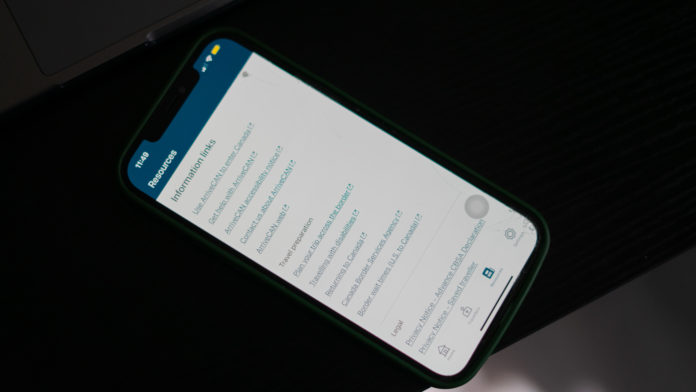As of Oct. 1, travellers entering Canada no longer have to use the ArriveCAN app to show their proof of COVID-19 vaccination and fill out forms, according to federal health minister Jean-Yves Duclos. Some are relieved that the problematic application will be removed, but some think it helped keep Canadians safe.
Duclos announced the new measures on Sept. 26. The Canadian government developed the app to screen travellers’ COVID-19 vaccination statuses and to instruct quarantines.
During the government’s press conference, Duclos said the decision was based on data showing that international travel was no longer having an effect on the evolution of COVID-19 in Canada.
“The transmission and cost of transmission of COVID-19 … are now almost entirely driven by domestic transmission of COVID-19,” said Duclos. “That’s where we need to invest our energy.”
While some travellers welcome the switch, that is not the case for Nicolas Atkins Valencia.
Valencia, an exchange student from Peru, said he thinks ArriveCAN was an effective way of tracking and containing the spread of COVID-19.
Before the removal of ArriveCAN, travellers had to report any COVID-19 symptoms within the app. Some travellers had to show COVID-19 test results in the app prior to travel or upon arrival.
“I’m concerned [that when the] ArriveCAN requirement gets removed, it will be problematic because it can spread COVID and other viruses that can be harmful to people from Canada,” said Valencia.
Valencia said he acknowledges the shortcomings of the app, citing the 72-hour limit can be a problem for people travelling for long periods.
“[ArriveCAN] is not a difficult process to go through. It is just downloading an app and filling some forms,” said Valencia. “I just think they should expand limitations to three days to maybe five.”
Daniel Calvo, a third-year economics student at St. Thomas University, came to Fredericton from Honduras at the beginning of the academic year. He remembers that nobody asked to see his ArriveCAN information when he landed in Canada.
“I stressed [out] so much only for them not to check,” he said.
Calvo said he was “overwhelmed” about getting all his documentation in order. His proof of vaccination was in Spanish. Immigration, Refugees and Citizenship Canada requires it to be translated by a certified professional into English or French, but that can take time and money.
Travellers needed to upload their proof of vaccination 72 hours before arrival, but because Calvo’s trip was 22 hours long, he technically only had two days to find a certified translator to translate and present the documents.
He ended up translating his documents himself.
“I had no trouble [making the translations] because when I arrived they didn’t ask [for] ArriveCAN,” said Calvo.

